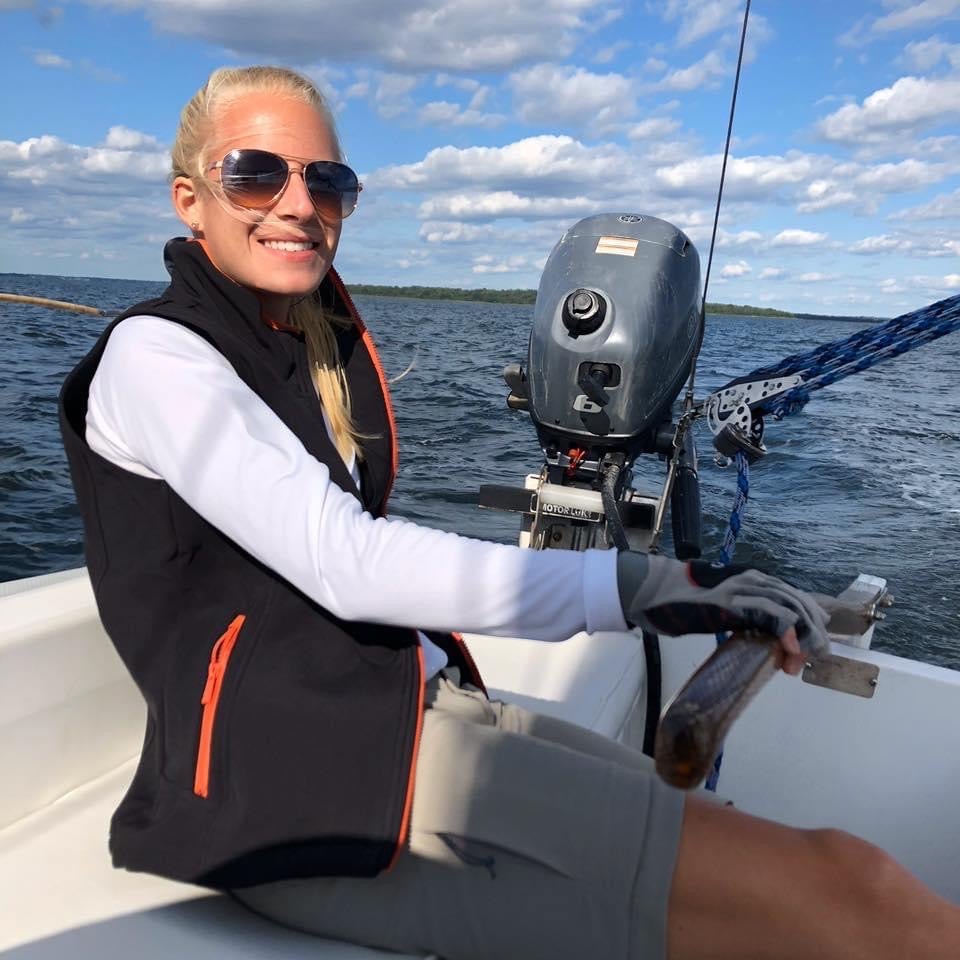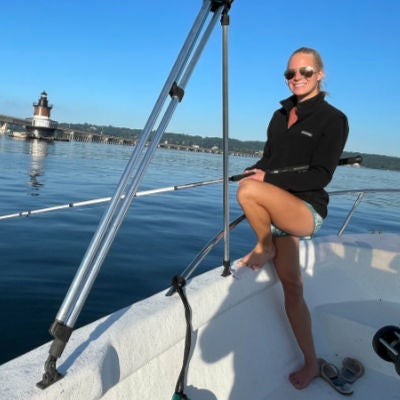May 18, 2023
For oceanography master’s graduate Sarah Cook, taking classes online just made common sense. The commuting time alone would be better used for study.
“I commuted from Warwick, and when I found out there’s an online program, I thought, ‘I’m going to save some gas money.’” Cook already had more “real-world” responsibilities than many students: she owned a house, a dog, and had other things in her life that would be better served by an online program.
After conversations with her advisor, Professor of Oceanography Art Spivack, Cook thought, “Let’s do this. Since it was a new program, I knew there would be kinks, but everything seemed very attractive.”
When she graduates Friday evening, May 19, in the Graduate School Commencement at the Ryan Center, she will be among a group of students who earned the Master of Oceanography degree by exclusively taking online courses.

Cook had friends who were participating in person. “They were raving about it and said we could go on an expedition together,” Cook explained. At the same time, however, she also had participated in a group chat for other online members of the program who were graduating. “I wanted to stick this out with them,” she said.
Cook’s original path through post-secondary education began miles away from the ocean at Lyndon State in Vermont, now called Northern Vermont University. Back then, she set her sights on becoming a meteorologist. While she enjoyed her coursework, she realized that meteorology would be more of a hobby in her life. So, she took some time off to sort out her career path. She returned to school at the Community College of Rhode Island, where she says that two of her classes steered her toward geological oceanography when she came to URI.
Once here, she met Spivack, who would become her advisor and play a pivotal role in her academic career. “He’s a great guy. I liked working with him with this program being online. I took his chemical oceanography class as the first one in this program. I’m not a chemist by any means. I found it difficult, but he just has this crazy understanding of everything. For the independent research, he was so happy that I was very passionate about what I was working on, and he gave me the leeway to do what I wanted to do.”
During her undergraduate and graduate years, Cook worked in the marine industry. When it came time for her final project, she decided to combine her education with her knowledge of and experiences with the industry.
“I had this idea of a mandatory marina manager training course. What I was seeing during my time in the marine industry was not fantastic for the environment, so I was hoping to address the issue. I hoped to put science behind the best management practices so people would understand why they should be following the protocols from the training, rather than simply how they are currently doing them. Rhode Island is so reliant on the marine industry and ecotourism. We have this amazing resource. We are The Ocean State.”
Eventually, Cook would like to work in coastal resilience. “I’d really like to study the shoreline processes. My undergraduate degree is in geological oceanography, and I’m really into sedimentary processes. I think I’d like to end up combining that with the marine industry and to try to push the marina manager course forward.”
This story was written by Hugh Markey.

